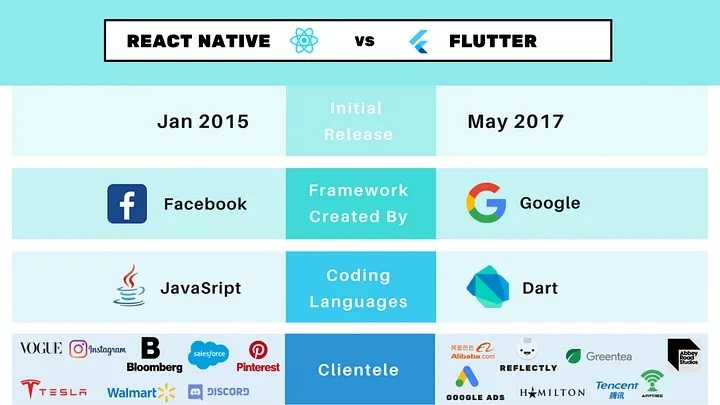Both Flutter and React Native are powerful frameworks for building cross-platform mobile applications, and each has its own strengths. Here are some reasons why Flutter might be considered powerful compared to React Native:
- Performance: Flutter boasts excellent performance due to its architecture. It uses Dart language and compiles to native code, which eliminates the need for a JavaScript bridge, resulting in faster app startup times and smoother animations compared to React Native.
- UI Consistency: Flutter uses its own rendering engine to draw UI components, providing consistent UI across platforms. React Native relies on native components, which might lead to slight differences in UI appearance and behavior between platforms.
- Hot Reload: Flutter’s hot reload feature allows developers to see changes instantly reflected in the app during development without losing the app’s state. While React Native also has hot reloading, Flutter’s implementation is often considered faster and more reliable.
- Widget-based Architecture: Flutter’s UI is built using widgets, which are composable and customizable building blocks. This widget-based approach allows for greater flexibility and control over the UI compared to React Native’s component-based architecture.
- Single Codebase: With Flutter, developers can write a single codebase for both iOS and Android apps, reducing development time and effort compared to maintaining separate codebases for each platform.
- Strong Tooling and Ecosystem: Flutter provides a comprehensive set of tools, including a rich set of widgets, plugins, and packages through its ecosystem, making it easier for developers to build feature-rich applications.
- Officially Supported by Google: Flutter is developed and maintained by Google, which ensures ongoing support, updates, and improvements to the framework. This backing from a major tech company instills confidence in the long-term viability of Flutter.
While Flutter offers these advantages, it’s essential to note that React Native also has its own strengths and is preferred by many developers for its familiarity with JavaScript and its larger community size. Ultimately, the choice between Flutter and React Native depends on specific project requirements, team expertise, and personal preferences.
